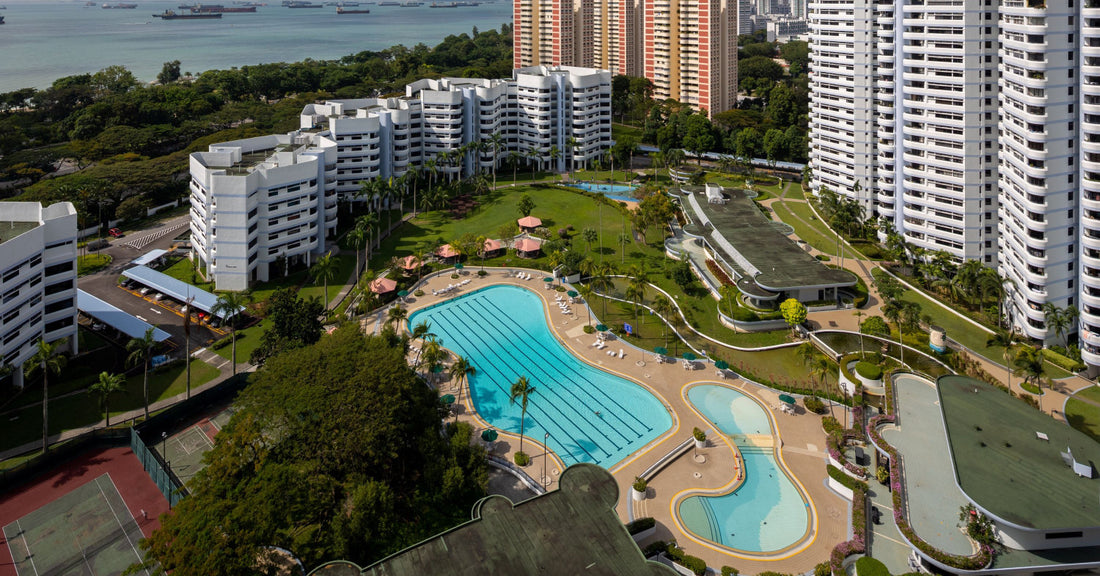Mandarin Gardens, a sprawling 1,006-unit development located along Siglap Road, has been a notable topic in Singapore’s real estate landscape. This time, the spotlight is on the failed collective sale bid in 2023, where only 42% of owners supported the bid—far below the required 80% threshold. The reserve price of $2.88 billion was the stumbling block, exacerbated by the April 2023 cooling measures that dampened market sentiment, particularly among foreign buyers affected by the increased Additional Buyer’s Stamp Duty (ABSD).
The primary challenge with collective sales often lies in the disparity between different groups of owners. At Mandarin Gardens, smaller unit owners were more inclined to sell, while owners of larger, high-floor units with sea views found it difficult to accept the replacement costs that came with a collective sale. This split reflects the complexity of reaching a consensus when different stakeholders have varying financial considerations and personal preferences.
With the collective sale bid now behind them, residents of Mandarin Gardens are pivoting towards rejuvenation and renewal. At the Annual General Meeting (AGM) in September, there was overwhelming support for improvement plans that will see significant upgrades to the estate, including replacing water tanks and conducting crucial waterproofing works. In fact, $5 million in upgrading works has already been approved—a move that signals the community’s commitment to preserving and enhancing the development’s value.
Proposed Upgrades and Renewals
As Mandarin Gardens continues to age, now 38 years old with 61 years left on its 99-year lease, regular maintenance and upgrades become increasingly critical. This is evident from the proactive approach taken by the condo’s management council, which has tabled several popular improvement proposals. These include upgrading common areas, adding facilities like an outdoor gym for seniors, and even retrofitting the car park with electric vehicle (EV) charging stations—a clear nod to the future of urban living.
Another notable addition is the return of the popular restaurant operator, ThaiPan, which will begin operations in October. This is just one of many steps being taken to rejuvenate the estate, improve residents’ quality of life, and refresh the appeal of Mandarin Gardens to both current residents and prospective buyers.
Lessons from Other Condos
Mandarin Gardens is not alone in this journey. Other older developments, such as Horizon Towers and Honolulu Tower, have also shifted their focus from collective sales to estate renewal and rejuvenation. These initiatives are often successful when there is an active and involved management council, coupled with strong resident support for the necessary upgrades. This is essential for maintaining a comfortable and attractive living environment, especially as the cost of maintenance continues to rise in tandem with inflationary pressures and increased wages for estate management personnel.
Rising Maintenance Costs
The reality is that maintaining older developments like Mandarin Gardens has become more expensive. Post-COVID inflation and higher wages driven by the Progressive Wage Model (PWM) have significantly increased the costs of essential services such as security, cleaning, and landscaping. Many condos, including Mandarin Gardens, have responded by embracing technology and smart solutions to reduce reliance on manual labor and keep costs in check.
Mandarin Gardens has managed to keep its service fees relatively stable, a testament to prudent financial management by the condo council. However, as costs continue to rise, it may be inevitable that service fees will need to increase in the future to ensure that the estate remains well-maintained and financially sustainable.
Summary: Key Highlights
- The collective sale bid failed with only 42% support, falling short of the 80% threshold required.
- Residents are now focusing on estate rejuvenation, with $5 million allocated for upgrading works.
- Popular proposals include upgrading common areas, installing EV chargers, and adding senior-friendly facilities.
- Rising maintenance costs due to inflation and wage increases are being managed through smart solutions and careful financial planning.
- Mandarin Gardens remains a desirable location, with renewed interest following the opening of new Thomson-East Coast Line (TEL) stations nearby.
The failed collective sale attempt at Mandarin Gardens serves as a reminder that large-scale collective sales are not always a guaranteed success, especially in a market with diverse homeowner interests and ever-evolving property regulations. However, the shift towards rejuvenation is a positive outcome that will not only enhance the quality of life for current residents but also help preserve and possibly increase property values in the long run.
For residents and potential buyers, this is an encouraging development. As Mandarin Gardens undergoes upgrades and improvements, the estate is positioning itself as a refreshed, vibrant community. If you are a homeowner or a prospective buyer, staying updated on these changes is crucial. The property landscape is evolving rapidly, and being informed can help you make the right decisions for your future.
If you’re keen to stay updated on the latest developments at Mandarin Gardens or other properties in Singapore, feel free to reach out to me. Whether you’re considering buying, selling, or investing, staying informed is the first step to making the best decisions in this dynamic real estate market. Let’s have a chat about your property needs today!

